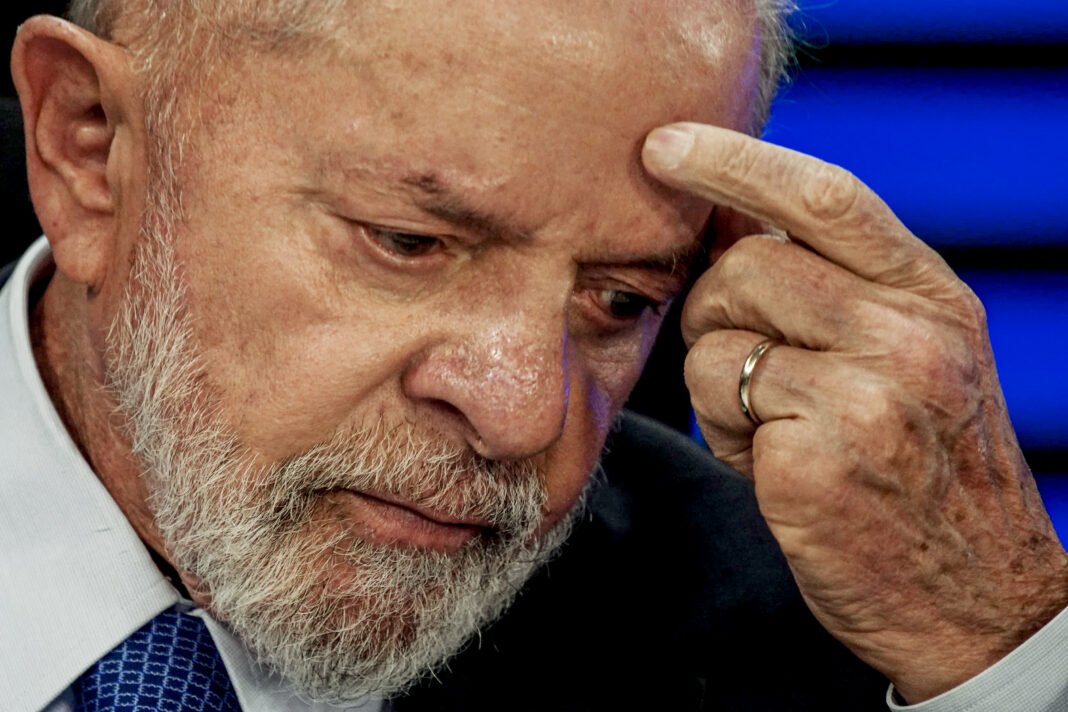The Brazilian political and economic landscape has entered a period of renewed tension and reorganization, driven by both external and internal pressures. At the center of this scenario is the 50% surtax imposed by the United States on Brazilian products, which, despite exemptions for strategic sectors, has prompted an immediate response from the government to mitigate its economic impact. Domestically, President Lula seeks to rebuild alliances in Congress following tax-related setbacks and waning legislative control under Speaker Hugo Motta. As Congress summarizes amid a packed agenda and mounting political pressure, including growing mobilization by Bolsonaro’s support base, the administration faces the complex task of managing economic diplomacy, reasserting governance, and stabilizing its political coalition.
This Content Is Only For Subscribers
To unlock this content, subscribe to INTERLIRA Reports.
American Surtax
Finance Minister Fernando Haddad stated on Thursday (31/07) that the decree formalizing the 50% surtax imposed by the United States on Brazilian products turned out to be better than expected. According to him, the U.S. announcement represents a “better starting point” for ongoing negotiations. The decree, signed on Wednesday (30/07) by President Donald Trump, raised the tariff on Brazilian goods to 50% but also introduced a list of 700 exceptions that benefit strategic segments such as aeronautics, energy, and parts of agribusiness. According to calculations by the American Chamber of Commerce for Brazil (Amcham Brasil), with the list of exceptions, approximately 43% of the sales made to Americans last year were not affected.
Most Affected Sectors
The sectors impacted by the U.S. tariff hike are assessing their losses while also taking steps to mitigate the damage by requesting federal government support. Industries such as machinery and equipment, meat, coffee, fruit, furniture, textiles, and footwear, among others, remain heavily taxed. Some companies may redirect production to other countries or the domestic market, but this process takes time and often requires a reduction in prices. On Friday (01/08), Finance Minister Fernando Haddad stated that the government is finalizing a plan to protect jobs and support affected sectors, which will be launched in the coming days.
Tense Resumption
The National Congress summarized work on Monday (04/07) amid a politically charged atmosphere and a demanding legislative agenda. Among the government’s priorities is the vote on the Budget Guidelines Law (LDO), which should have been approved before the July recess. The vote is a prerequisite for progress on the 2026 Budget. The Planalto Palace is also urging rapid advancement on other fronts, such as the bill adjusting the Income Tax (IR) table, including the exemption promised by Lula during the campaign for those earning up to R$5,000 per month, and the regulation of the tax reform—an essential step to implementing the changes approved last year. The political environment remains tense. The return of the Legislature coincides with the announcement of the U.S. surtax and growing legal pressure surrounding former President Jair Bolsonaro (PL).
Reorganization of the Base
President Lula (PT) intends to capitalize on his slight increase in popularity and the temporary easing of tensions with Congress to reorganize his support base and avoid crises like the IOF episode. At the end of June, shortly before the recess, senators and representatives overwhelmingly rejected the Executive’s proposal to raise the tax defiance not seen since the Fernando Collor administration. Last week, Lula met with ministers from União Brasil and with ministers and leaders of the MDB to discuss their roles in the administration. Further meetings are planned for the coming days.
Reduction in Governance
The first half of Hugo Motta’s (Republicans) term as Speaker of the House has seen a modest decline in legislative cohesion, contrary to the expectations of Workers’ Party members who had anticipated smoother voting dynamics following Arthur Lira’s (PP) departure. Allies from six different parties noted that the Executive’s legislative difficulties are due more to the Lula administration’s missteps than to the Speaker’s conduct. Most of these representatives cited a general deterioration in the political climate, although one emphasized that the government has not faced serious obstacles despite fluctuating vote counts.
Pro-Bolsonaro Rally
Former President Bolsonaro’s support base held a rally on Sunday (03/08) on Paulista Avenue, attracting 37,600 participants at its peak around 15:33. This estimate comes from the research group “Monitor do Debate Político” (Political Debate Monitor) of the Brazilian Center for Analysis and Planning (Cebrap), coordinated by Pablo Ortellado and Márcio Moretto of the University of São Paulo (USP), along with the NGO More in Common. The crowd was more than three times the size of the previous right-wing rally in São Paulo on June 29. However, it was considered small.
Analysis:
The current moment in Brazilian politics reflects a delicate intersection of domestic fragility and international pressure. The 50% U.S. surtax, though softened by sector-specific exemptions, underscores the volatility of Brazil’s external economic relationships and the urgency for responsive trade diplomacy. Finance Minister Haddad’s measured optimism reveals a government trying to project control while racing to protect vulnerable sectors, especially those like machinery, meat, and textiles, which lack immediate alternatives. Domestically, Lula faces the simultaneous challenge of rebuilding congressional alliances and reasserting leadership amid an increasingly fragmented legislature.
The recent breakdown of legislative cohesion, particularly after the IOF vote and under Speaker Hugo Motta’s leadership, has exposed persistent flaws in the administration’s political coordination. The rush to secure support for budget and tax reforms suggests a government working against the clock, navigating a Congress less disciplined and more transactional than anticipated. Meanwhile, Bolsonaro’s mobilization efforts, although still numerically modest, signal a steady presence that could complicate Lula’s path to governability.
Sources: O Globo [1], [2], [3], [4], [5]; G1 [1], [2]; A Folha de SP.




